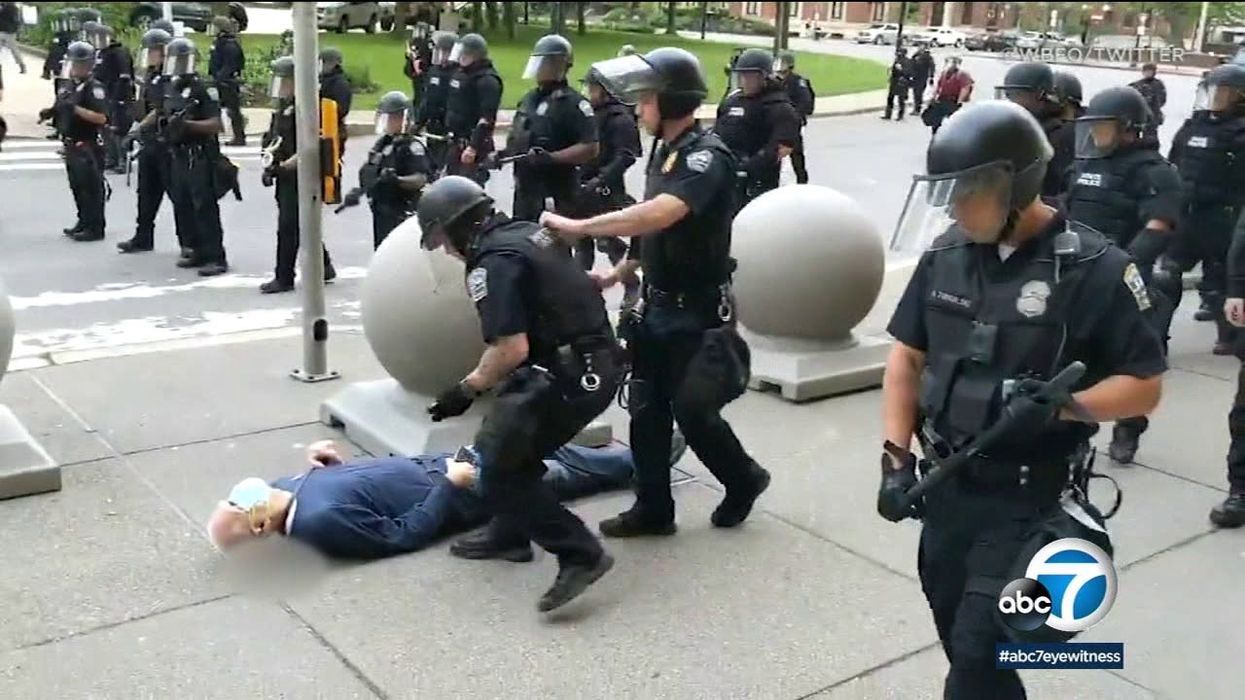President Trump tweeted a baseless theory that 75-year-old Martin Gugino, seriously injured while peacefully protesting in Buffalo, N.Y., following the death of George Floyd, could be "an ANTIFA provocateur." Trump offered no evidence to support the claim — only referencing a report from One America News Network by Kristian Rouz, formerly of Russian state media Sputnik News. The OANN story cited an article on a blog called the "Conservative Treehouse" that had been written by an anonymous person who published the piece under a pseudonym.
Gugino's attorney denied Trump's claim in a strongly worded statement given to Law&Crime, writing Gugino had always been a peaceful protester and "[n]o one from law enforcement has even suggested anything otherwise." The tweet has received backlash from lawmakers on both sides of the aisle, as well as former Vice President Joe Biden.
Gugino has been released from intensive care but remains hospitalized following the incident.

















 "On the Frontlines of Democracy" by Nonprofit Vote,
"On the Frontlines of Democracy" by Nonprofit Vote,

Trump & Hegseth gave Mark Kelly a huge 2028 gift